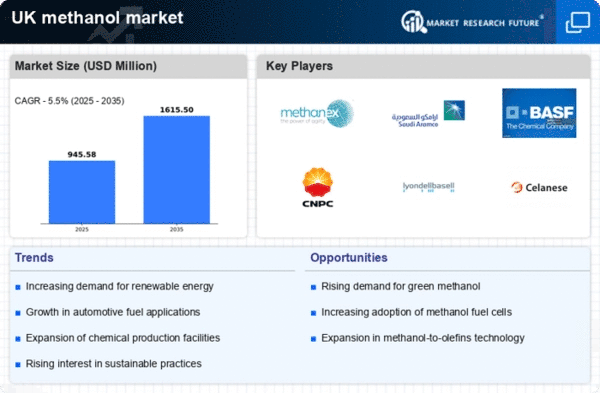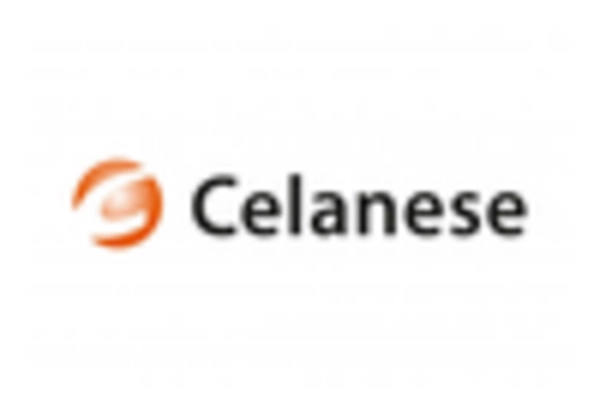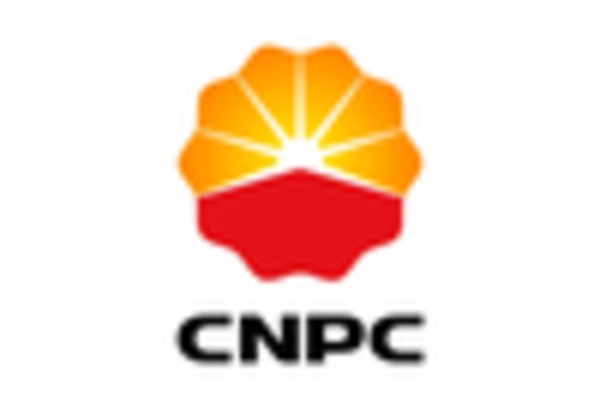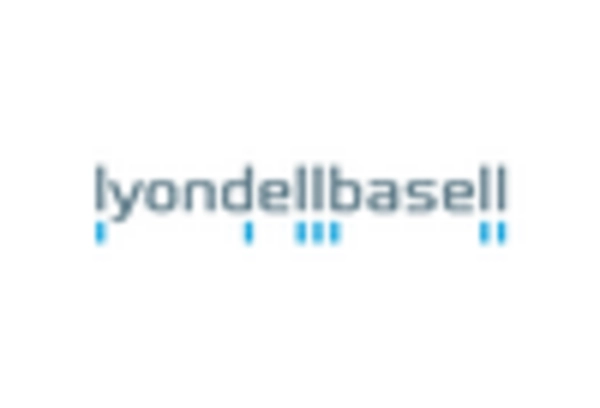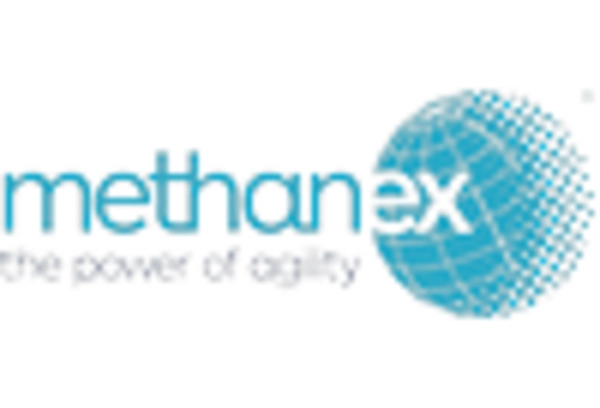The methanol market exhibits a dynamic competitive landscape characterized by a blend of established players and emerging innovators. Key growth drivers include the increasing demand for methanol as a clean fuel alternative and its applications in the production of chemicals and plastics. Major companies such as Methanex Corporation (CA), Saudi Methanol Company (SA), and BASF SE (DE) are strategically positioned to leverage these trends. Methanex Corporation (CA) focuses on expanding its production capacity and enhancing operational efficiency, while Saudi Methanol Company (SA) emphasizes vertical integration to secure its supply chain. BASF SE (DE) is investing in sustainable production methods, which collectively shapes a competitive environment that prioritizes innovation and sustainability.In terms of business tactics, companies are increasingly localizing manufacturing to reduce transportation costs and enhance supply chain resilience. The market structure appears moderately fragmented, with a few dominant players exerting considerable influence. This fragmentation allows for niche players to thrive, yet the collective strategies of major companies create a competitive atmosphere that is both challenging and opportunistic for new entrants.
In October Methanex Corporation (CA) announced the commissioning of a new methanol plant in Louisiana, aimed at increasing its production capacity by 1.3 million tonnes annually. This strategic move is significant as it not only enhances Methanex's market share but also positions the company to meet the growing demand for methanol in North America, thereby reinforcing its competitive edge.
In September BASF SE (DE) unveiled a partnership with a leading renewable energy firm to develop a methanol production facility powered by green hydrogen. This initiative underscores BASF's commitment to sustainability and innovation, potentially setting a new standard for environmentally friendly methanol production. Such collaborations may redefine competitive dynamics by integrating renewable energy sources into traditional manufacturing processes.
In August Saudi Methanol Company (SA) expanded its operations in the Middle East by acquiring a local competitor, which is expected to enhance its market presence and operational capabilities. This acquisition reflects a broader trend of consolidation within the industry, as companies seek to strengthen their market positions through strategic mergers and acquisitions.
As of November the competitive trends in the methanol market are increasingly influenced by digitalization, sustainability initiatives, and the integration of artificial intelligence in production processes. Strategic alliances are becoming pivotal, as companies collaborate to enhance technological capabilities and improve supply chain efficiencies. Looking ahead, competitive differentiation is likely to evolve from traditional price-based competition to a focus on innovation, technological advancements, and reliability in supply chains, suggesting a transformative shift in how companies position themselves in the market.


